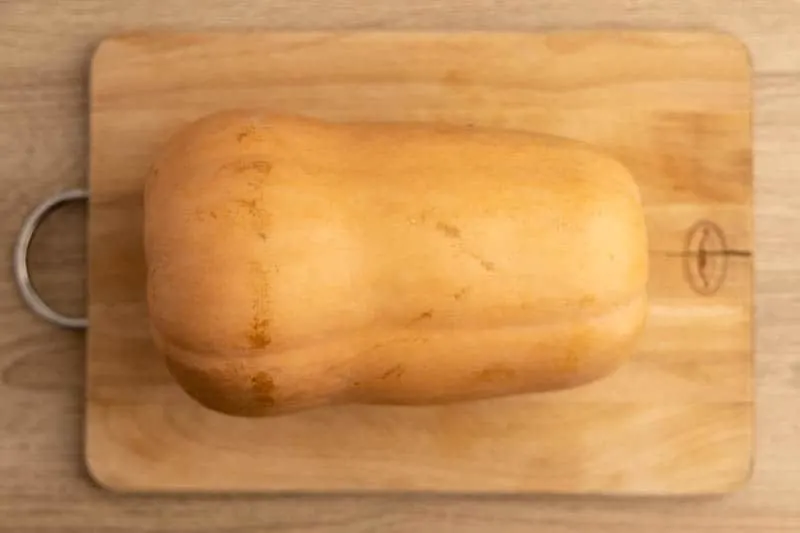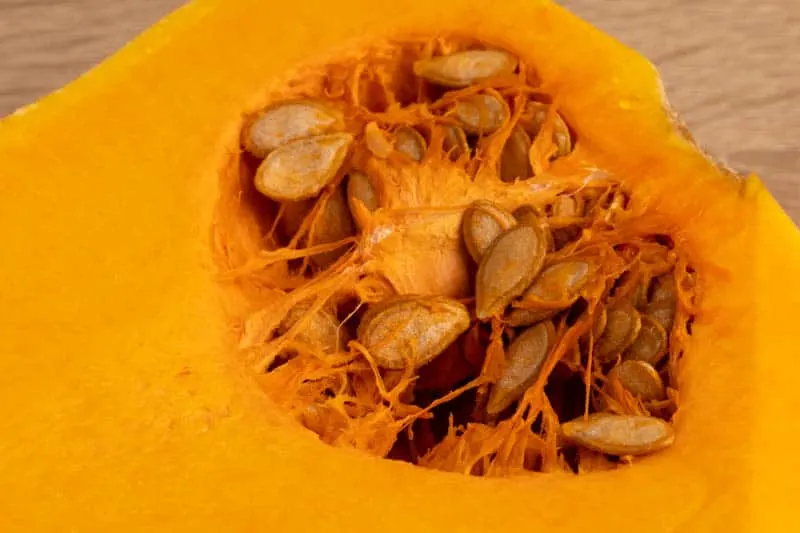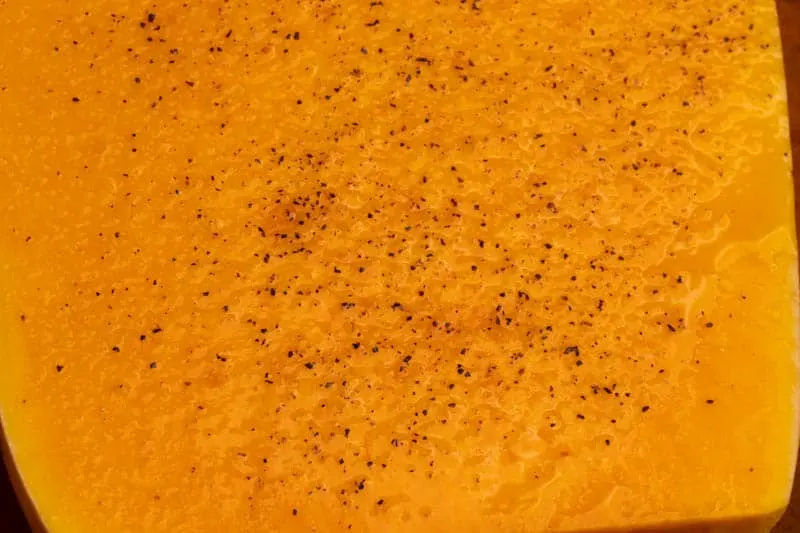Who doesn’t enjoy a warming squash soup in the winter?
But even if that soup is a regular guest on your menu in the cold months, it doesn’t mean the butternuts won’t spoil if you buy too many or keep them for too long.
Especially if it’s late February already, and you still have a couple ones that you purchased on a sale a week ago.
In this article, we will go through signs of spoiled or old butternut squash, its shelf life, and the best way to store it long term.
If that’s what you’re looking for, continue reading.

Can Butternut Squash Go Bad? How To Tell If Butternut Squash Is Bad?
Butternut squash, obviously, can go bad. But at the same time, like onions and garlic, it lasts quite some time if you buy it fresh and store it properly.
Let’s talk about the signs of spoilage.
You don’t really know if your butternut is spoiled or not until you open it up. But there are a few things that might hint that you won’t like what’s inside.
Here’s what you should look for when checking if your whole butternut is okay:
- Mushy and bruised spots on the rind. Usually there are a few small ones that you can cut out during preparation.
- The weight seems low. If it’s heavy, the moisture content is high, which is good ([ETS]). If it doesn’t feel heavy at all, or even seems empty inside, most of the water is probably gone, and it won’t be any good.
- The veggie is leaking or the whole thing is mushy. If that’s the case, just throw it out.

Now it’s time to cut it up and see what’s inside.
When it comes to the butternut’s flesh, it’s easy to tell if it’s okay or not. It all comes down to color and firmness.
Bright orange flesh that’s firm to the touch is what you’re looking for. If there are any minor mushy or rotten spots, cut them out.
Over time the seeds’ section might turn stringy and look kind of disgusting. That’s the butternut starting to dehydrate. It’s normal and nothing to be concerned about.
For cooked or cut butternuts, look for mold, “funny” smell, and changes in texture. If there are any white specks on the surface, or the quality isn’t good enough anymore, get rid of it.
Of course, the longer you store the butternuts, the higher the chance they will go off. That brings us to the next topic, that is the storage time of this winter squash.

How Long Does Butternut Squash Last?
Whole butternut squash lasts about 2 to 3 months in ideal conditions ([OSU][ISU]), which is temperature between 50°F and 55°F (or 10°C and 13°C).
If you store them in the pantry, butternuts can last a month or two, depending on temperature and other conditions..
Of course, the time the squash will stay alright depends on when it was harvested and how long it sat on the shelf, too. And if you’re buying veggies in the supermarket, you never know for sure.
Hope for the best and plan for the worst. Don’t try to get the longest possible shelf life, but plan on eating the butternuts within a few weeks of buying instead.

Butternut squash is a seasonal product, at least if you buy it locally. In the US, it’s in season between October and February ([ETS]).
Therefore, if you’re buying butternuts in April or May, these are most likely imports. They can taste a bit different, and you probably won’t be able to store them for as long as you would the local stuff.
If you need butternuts when they aren’t in season, consider buying them frozen.

If you want to get the squash ready for cooking ahead of time, cut or chopped butternut squash can last for about 3 to 4 days in the fridge.
Once you cook or bake it, it should retain quality for about 4 to 5 days.
If you’re meal-prepping for the whole week ahead, keep 4 days worth of portions in the fridge and freeze the rest to be sure nothing goes off.
Speaking of shelf life, it also depends on how exactly you store the veggies. Let’s cover that.

How To Store Butternut Squash?
You already know what’s the perfect temperature for butternut squash, and that a cold pantry is the second best choice here.
Besides the temperature, it’s important to keep the squash dry and well ventilated (which also helps with getting rid of moisture) ([OSU][ISU]). It’s the opposite of summer squash like zucchini, which prefer humid conditions.
If you’ve brought the squash home from the market in a plastic bag, take it out. Those bags tend to trap moisture.
Furthermore, don’t let the squash sit next to apples, bananas, or any other ripening fruit. These produce ethylene gas that speeds up the ripening process.
Cut, chopped, or cooked butternut should sit refrigerated, and sealed tightly. An airtight container is probably your best option here, as it will keep any moisture and smells at bay.
Last but not least, if you’re afraid that your squash will go bad, freezing is the solution to this problem.
Can You Freeze Butternut Squash?
Not all veggies freeze super well, and butternut squash isn’t a superstar in this department. But you can to get away with freezing cooked butternuts.
The best way to go about this, at least in my opinion, is to test out freezing your favorite butternut squash-based dishes.
Soups, especially creamy ones, should freeze very well; just make sure you add any fresh herbs when reheating, not before freezing.
For casseroles and stews, how well they freeze depends on other ingredients.
If you’re willing to make this work, try freezing a small portion and see how it goes. You might need to tinker with the recipe a bit, or find another one if your favorite clearly isn’t working.
Or you can just cook or bake the squash, divide into a few portions and pack each one in a freezer bag or an airtight container, and put in the freezer.
This way you can easily thaw the butternut flesh overnight in the fridge and do whatever you want with it next.
Defrosted squash should work well in soups and stews, and maybe even stir-fries. When it comes to casseroles, it depends on the recipe, so you have to find that out for yourself.
Summary
- Buy butternut squash when in season if possible. Make sure the rind is firm, and the veggie feels heavy.
- Cut out any mushy and discolored parts. If it’s still whole and feels super light or is leaking, throw it away.
- Store butternuts at room temperature for 4 to 8 weeks, or freeze cooked.